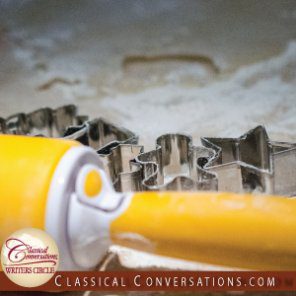This article originally appeared on the blog Hays Haus.
We hope you enjoy reading it here.
As parents, we have the opportunity to instill countless habits, tendencies, or trajectories in our children’s lives. Some of these come naturally by virtue of the atmosphere of our households; we simply breathe the same air for twenty years or so.
One tendency at the HaysHaus that I find funny is how our use of Essential Oils has changed the way our children look at minor first aid and health care. If someone gets a headache, they ask their mom if they can smell some Peppermint; a minor abrasion, they ask to apply some Lavender; and a slightly infected area calls for Thieves. The presence of these remedies precludes any questions for pharmaceuticals. (However, when they get a cut, they still want a Band-Aid.) This aspect of their lives is under our control as parents; we created this atmosphere and the children don’t know differently. However, not everything falls into the category of total parental control.
Our children are human persons. They live, move, and have their being bearing the stamp of their Creator. This divine image is manifest in every aspect of their being. From the womb, they each have a unique personality, a will, a sense of justice, a rational mind, and a kinship with those who bear the same image. Along with this heavenly nature, they also bear the fallen nature of their earthly forefather, Adam. They were conceived in sin, born sinners, and will struggle with sin from youth to old age.
These aspects—their human nature and their fallen human nature—mean that not everything falls into the category of “things parents control.” I can prescribe Lavender for a scrape, and it will be the only possibility for them. As parents, we can create an atmosphere of love and forgiveness, but we can’t make them love their sister or forgive their brother. We can show them faith, but we cannot give them faith. Concerning education, I can show them a love for learning, but I cannot prescribe a love of learning in such a way that leaves them with no other options. Categories like love, forgiveness, and faith are outside our control as parents.
The fact that the eternal things about our children are outside our control is not a curse, but a blessing. This means that our deficits, failings, and shortcomings as parents will not necessarily cause our children to always lack, fail, and come up short. Our successes can engender their successes and our failures can be used by God as manure on a holy garden. He exchanges beauty for ashes and this promise can be applied to our parenting as much as to our own salvation.
Another important thing to remember as we discuss our role as parents is if Jesus had wanted cookie-cutter people, then he would have made us cookies, but he didn’t. The human person is unique amongst all other created things and each human person is unique when compared with any other human person or all other people combined. Given this fact, each high school student is a unique individual with a unique purpose that can only be fulfilled by fostering his or her personal strengths and strengthening his or her personal weaknesses.
We do not want our high school students to be cardboard cutouts of the ideal home school high school student, because such a creature does not exist. You might answer that Jesus was homeschooled through high school, so He would be the ideal student. I would reply, “No,” because Jesus wasn’t an idea; Jesus was a baby, then a boy, then a man. You would be right that He completed “high school,” indeed His whole life, without sinning, but not without struggles, not without hard work to overcome the impediments He came up against. (I know I am equivocating a bit on the words “idea” and “ideal,” but when we think of Jesus’ life, I fear that all too often we create an image in our minds that fits what we think His life must have looked life, rather than what actually happened. Any notion of “ideal” must come from Jesus’ actual life, which was fraught with struggles.)
As parents, we can do much to prepare our students with the tools they need to succeed, but we cannot create an atmosphere in our homes that will make high school easy. If we think that the seven liberal arts and Sayers’ insight into the trivium is going to make growing up easy, we are lying to ourselves, which means we will not be prepared to deal with reality when we step in it. We must remember whose image our children bear. We must remember their nature as created, as fallen, and as redeemed if we want to ably assist them through the gauntlet of growing up.
Are we desiring classical, Christian cardboard cutouts? Nope, and that’s a good thing. Our “ideal” high school homeschooler would fall far short of the glorious plans God has for our kids in Christ Jesus.




